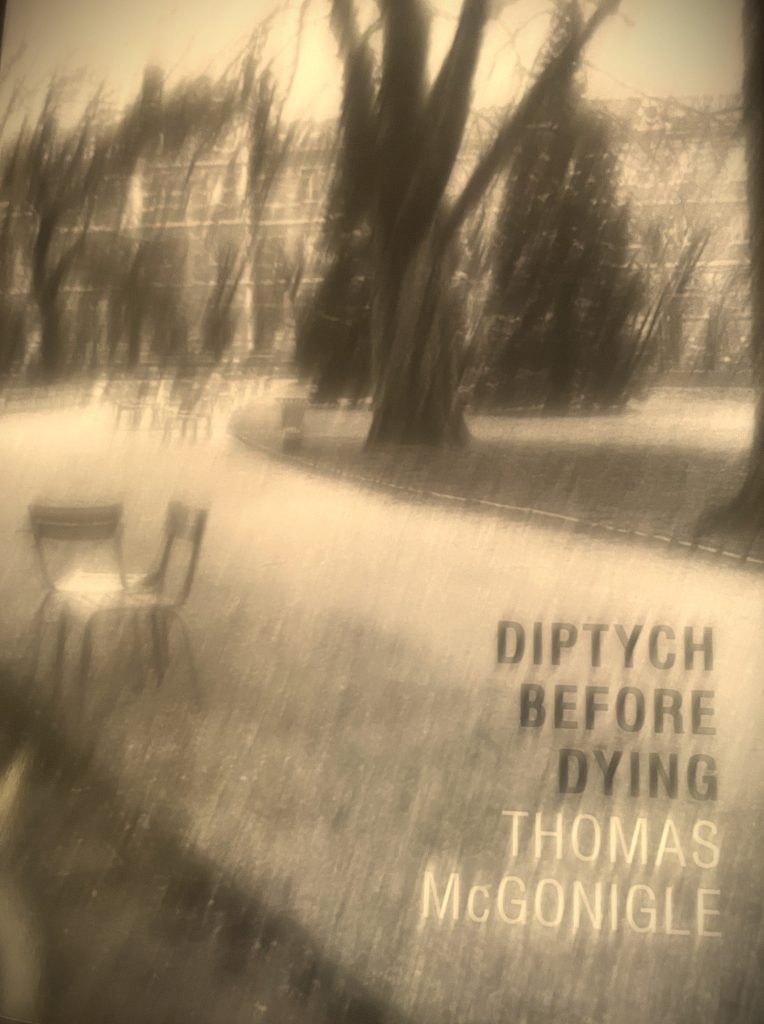
Diptych Before Dying by Thomas McGonigle. Tough Poets Press, 114 pages. Review by Kevin T. McEneaney.
Diptych offers a family travelogue novella, one about an adventure in Newfoundland with the author’s father and another about an earlier, happier period with his sister and father in Mexico City. The former was after the death of the author’s mother, and the latter was about an earlier, happier period. His father died seven weeks after his mother’s death, something I identify with since my father died in despair six weeks after my mother’s death, not having slept a single minute since my mother’s death. The foundation theme of the novella is the love bond between husband and wife.
Fathers and Sons by Ivan Turgenev remains a classic study of generational change around themes of family, education, and generational differences. Such themes are present in this introspective memoir by McGonigle. Whereas Turgenev wrote about Russian aristocrats, McGonigle writes about the working class and its cultural context in the 1970s; he writes with a post-modern technique where presence sometimes appears as absence, while absence often appears as presence, an eternal conundrum delineated by time and memory.
The first panel focuses on painful and eccentric memories to distract his father from his depressed immersion regarding his wife’s death. The second panel brims with a buoyant recollection of an earlier vacation with his father and sister. The narratives are frequently interrupted by the author’s present observations on various topics or musings that enliven the narrative while imbibing the disjunction of time and culture.
I was surprised to find a reference to Jack Kerouac’s novella Tristesse (1960), which is one of Kerouac’s finest works. Whenever I mentioned that novella to a Kerouac fan, I’ve received a blank look or “I’ve never heard of it” reply. The mention of a few book titles in the narrative exposes the cultural rift between father and son. The father-son narrative dances with digressions, letters, speculations, historical background, odd comments about the currents of life, and a peculiar sense of impish humor. The novella is an introverted ride rather than a straightforward narrative. The rhythm of sentences may be long or shockingly brief. The novel features some family period snapshots. At times, memories of living in Wisconsin emerge.
In the end, the diptych is about both mother and father and their deaths.
As with Vergil’s Aeneid (the story of my family surname goes back five at least five thousand years to the Akkadian empire) where the son carries the image of one’s father through years of memories, the father, “who is always going away,” and who yet remains a current obsession to be invoked at any incongruous moment.
This novella was originally published in Bulgarian five years ago.
McGonigle is an award-winning novelist with six other published novels, yet he still hikes about with a backpack of unpublished novels….
